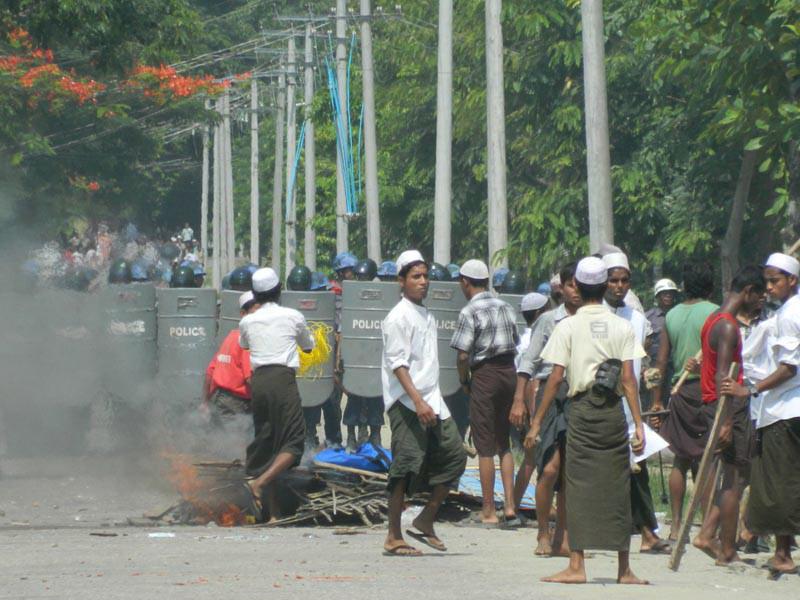Breaking
UN rights committee urges Myanmar to allow full citizenship for persecuted Rohingya minority

Security forces approach rioters as they burn remnants of a demolished house in 2012. Wikimedia Commons.
The U.N. General Assembly’s human rights committee on Friday approved a resolution urging Myanmar to allow its persecuted Rohingya Muslim minority “access to full citizenship on an equal basis.”
The committee adopted the resolution by consensus, though Myanmar’s ambassador objected to the U.N.’s use of the term “Rohingya,” saying it “will only pose a barrier on the road to solving this important issue.”
Myanmar’s 1.3 million Rohingya have been denied citizenship and have almost no rights. Authorities want to officially categorize them as “Bengalis,” implying they are illegal migrants from neighbouring Bangladesh.
People who refuse that identity become candidates for detainment and possible deportation.
The government’s “action plan” soon will be released, Myanmar Ambassador Tim Kyaw told the committee.
The European Union-drafted, non-binding resolution is one piece of international pressure on the predominantly Buddhist Southeast Asian country to change its approach. The resolution now goes to the General Assembly, where a strong vote in its support would send a message that international opinion is not on Myanmar’s side.
The U.S. government pressed Myanmar to change its approach to the Rohingya before President Barack Obama’s visit to the country for a regional summit earlier this month, without apparent success.
Attacks by Buddhist mobs have left hundreds dead and 140,000 trapped in camps, and other Rohingya are fleeing the country.
But this week, President Thein Sein called reports that the Rohingya are fleeing alleged torture a “media fabrication” during an interview with Voice of America.
Myanmar’s ambassador on Friday said that language in the resolution referring to “attacks against Muslims and other religious minorities” are misleading and can only contribute to inciting hatred.
The Rohingya have emerged as a sensitive issue as Myanmar tries to move away from decades of repressive military rule toward democracy.
The resolution approved Friday also addresses international concerns over next year’s presidential election, saying Myanmar should allow “all candidates to fairly contest” the vote.
There has been uncertainty over whether opposition leader Aung San Suu Kyi could hold the presidency. A clause in the constitution bars anyone whose spouse or children are loyal to foreign countries from becoming president or vice-president. Suu Kyi’s two sons are British citizens, as was her late husband.





















